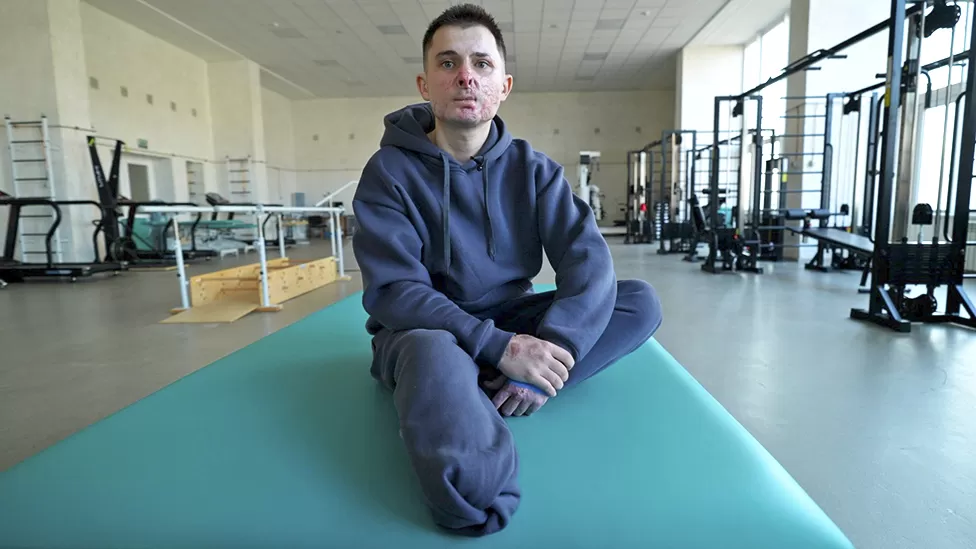It was in early September last year, during Ukraine’s grinding counter-offensive in the southern Kherson region, that Illya Pylypenko’s war ended abruptly.
The soldier’s tank drove over a mine as it headed into combat. When the 30-year-old regained consciousness, he was surrounded by fire.
“You are not thinking about what you need to do,” he says. “You do it because you want to live.”
Illya survived because he was able to crawl out and be evacuated by his comrades. He has since had several operations and skin transplants for his burns, and his right leg had to be amputated below the knee.
Six months later, he still contemplates his life-changing injuries.
“I had both disappointments and hope,” he says. “The hardest stage of my treatment is behind me. I dream about walking soon.”
Before the war Illya was an estate agent from Vinnytsya, in central Ukraine. A keen runner, he finished a marathon in 2021 and planned to compete in more. He signed up to fight just days after Russia launched its full-scale invasion in February last year.
“You should not underestimate yourself but also you should not pity yourself,” he adds. “Everything is still ahead of me. I’m alive and healthy. It’s not the end.”
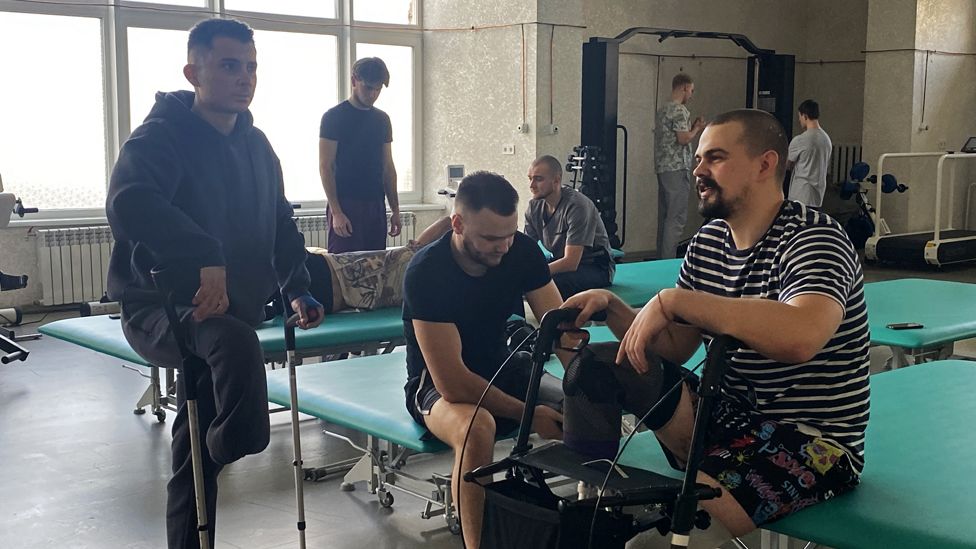
Lviv’s general hospital is one of 244 across Ukraine which take in injured soldiers and civilians, treating them for physical and psychological wounds.
Men in military uniforms mix with members of the public. Subtle hints that these aren’t normal times.
The deeper you go into the building, the more pronounced those clues become. Mostly young men fill the corridors – the majority are missing limbs.
In a war defined by artillery, the most common injuries are from exploding shells, according to Ukraine’s health ministry.
According to the World Health Organization (WHO), one in two Ukrainians needed some form of rehabilitation before the invasion last year, when the country had already seen eight years of fighting in the east. The pandemic has also been partly blamed by the WHO.
Russia’s full-scale invasion has dramatically increased the need for rehabilitation services across Ukraine.
Money from international allies and local sponsors has paid for the state-of-the-art gym these men are being trained in.
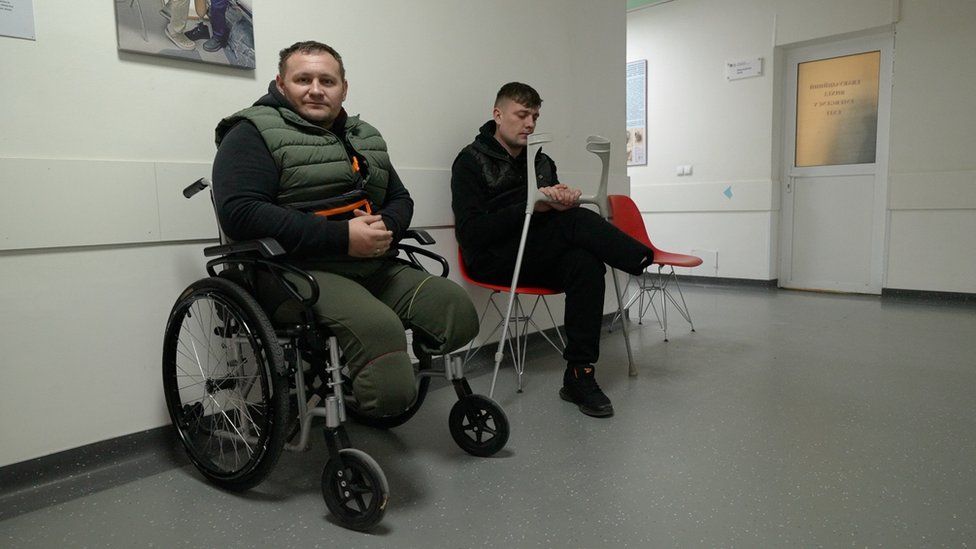
Despite investment, Ukraine’s health system is under strain.
Officials say they’re struggling to deal with antibiotic resistance as hospitals become overcrowded with civilians and soldiers.
Cancer diagnoses and mental health provision have also been affected by prioritising wounded personnel.
Vasyl Strilka, who’s in charge of physical rehabilitation at Ukraine’s health ministry, admits more patients are dying because of cancelled operations and delayed cancer treatments.
While nine years of Russian aggression has left the country well-practised in treating injured soldiers, Mr Strilka says the quality of treatment they get can vary.
“There are some hospitals where doctors provide good rehabilitation,” he tells me. “There are also some where doctors have not had any experience, and their care is not good enough.”
As the soldiers are put through core stability exercises, their stares into the distance reflect the brutal fighting they’ve emerged from. Health officials say that because they are having to prioritise physical trauma, there is a growing mental health crisis across the population.
Despite all these hurdles, there are people who show a return to a fuller life is possible.
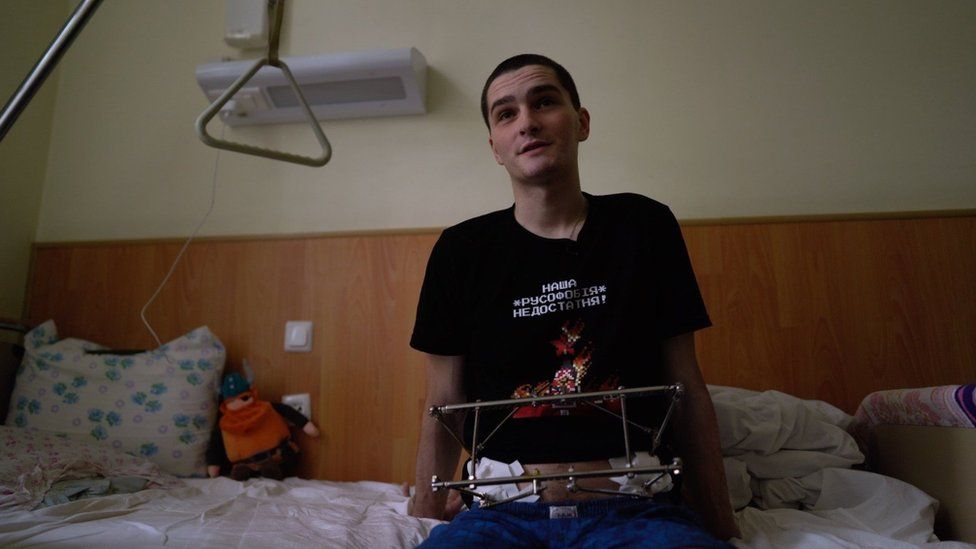
On a bitterly cold Kyiv morning, the sight of Hlib Stryzhko jogging with his friends is a moving one.
We last saw him in May, when he was lying in a hospital bed with a broken pelvis and jaw.
He was injured while defending the south-eastern city of Mariupol early in the invasion. Despite then being captured, he somehow made it home.
He’d always said he wanted to return to the front line. However, after losing sight in one eye, he’s been told his military days are over.
Now Hlib works at a veterans hub, organising events and lectures for other former soldiers.
“I struggled for a long time,” he says. “Sadly, my unit doesn’t exist any more as I knew it. Those who served there with me were either killed or captured.
“I then realised I wasn’t betraying them by not returning.”
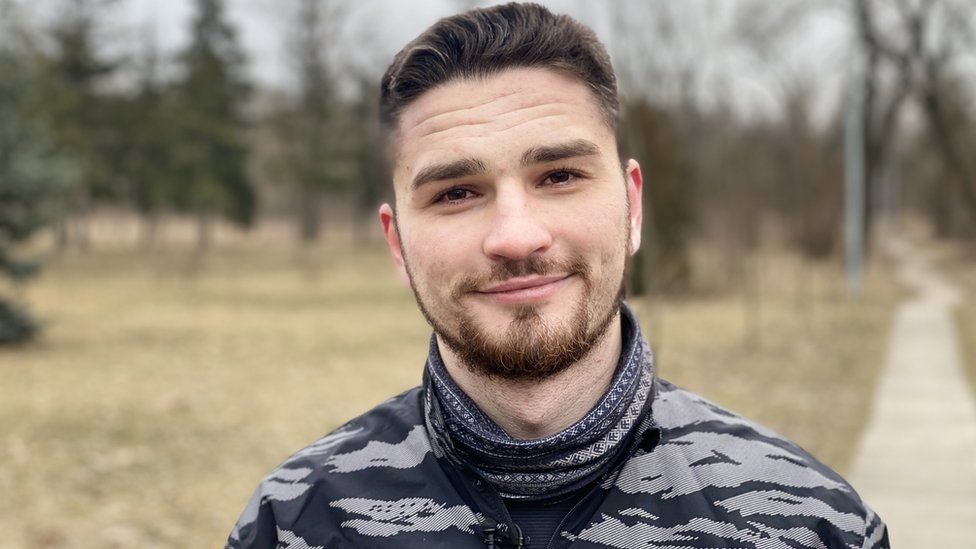
The soldier says he’s grateful to the psychologist who helped him deal with flashbacks, as well as the sense of guilt and loneliness.
“I had some challenges, like fully acknowledging all of the horrors I survived,” he says, “as well as all of the wonderful things of this war, like the support of my friends.”
The healing process for Ukraine’s soldiers is made all the more difficult with the continued fighting.
This 26-year-old shows it is still possible, despite everything.
